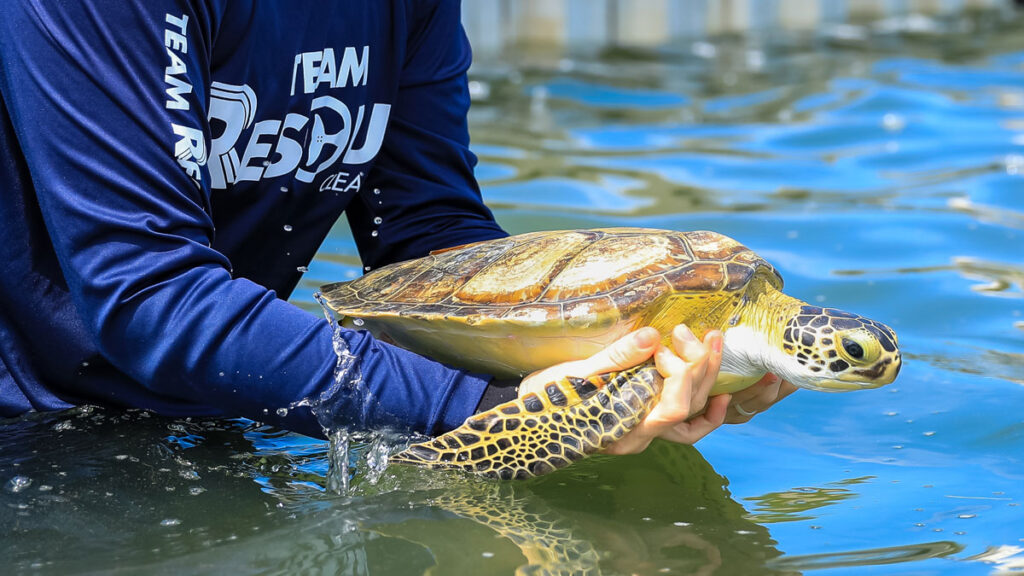Orlando Sentinel | Florida’s Marine Parks Help Save Endangered Species

Orlando’s SeaWorld among the parks fighting to rescue endangered marine life including manatees, sea turtles, dolphins, and whales
By: Robin Ganzert
Marine parks provide people with the opportunity to experience the wonders of the ocean. SeaWorld Orlando is a prime example. The facility attracts millions of visitors every year and is home to marine life ranging from stingrays to orcas. Given it was recently World Penguin Day, it is also notable that the park houses six different species of penguins.
But in addition to showcasing lovable arctic birds and helping to inspire the next generation of animal enthusiasts, these parks facilitate critical conservation work.
For example, the SeaWorld Conservation Fund— which celebrated its 20-year anniversary in February—has contributed more than $20 million to help rescue animals, restore habitats, and fund research and education initiatives around marine life. New grants made this year are helping to save dolphins, whales, seals, and sea turtles, among other animals, as well as restore coral reefs.
The Georgia Aquarium is another example of a world class facility that is actively promoting conservation and animal welfare.
The facility is in the unique position of being the only aquarium in the western hemisphere to house a whale shark—a fish that averages more than 30 feet in length. The gentle giant provides huge research opportunities that are critical to the conservation of the species in the wild. Since 2004, the aquarium and its partners have also studied and tracked the movement of more than one thousand whale sharks off the coast of Mexico.
The whale shark is far from the only focus. The aquarium, in partnership with the Coral Restoration Foundation, works to restore healthy habitats for fish, as well as rehabilitate other marine life. In 2016, the aquarium famously rescued six sea lion pups that were stranded on a California beach. And this is only one initiative that grabbed headlines.
The positive impact of responsible zoos and aquariums cannot be overstated. Globally, these certified facilities spend more than $350 million annually on wildlife conservation and help to introduce people to thousands of species they would ordinarily never get to experience. Afterall, you cannot protect what you do not love, and you cannot love what you do not know.
This work could not be more important.
Earth is in the midst of the sixth mass extinction, with the possibility of more than 75 percent of animal species disappearing within the next 300 years. Over the past decade, 367 species have already gone extinct with many others on the chopping block in the short run. In fact, a recent Reuter headline warned, “Extinction crisis puts 1 million species on the brink.”
The threat is on full display right here in the Sunshine State. And with one of the most diverse ecosystems in the United States, there is a lot to lose. Florida—home to the world renowned Everglades— enjoys more than 7,000 species of plants and animals. Many are in danger of vanishing. According to the U.S. Fish and Wildlife Service, roughly 135 species in the state are currently “threatened” or “endangered.”
The world is facing an extinction crisis—and we all have a role to play. Responsibly run zoos, aquariums, and other animal sanctuaries is one piece to the conservation puzzle. Orlando should be proud it has a starring role.
Robin Ganzert, Ph.D., is president and CEO of American Humane, the country’s first national humane organization and a certifier of zoos and aquariums. She is also a Florida resident.